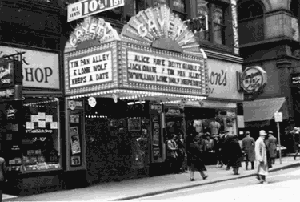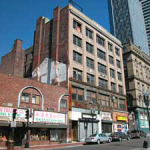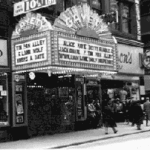As a city rooted in history, the people of Boston are often deeply divided regarding the preservation of its structures. For the last year, the Gaiety Theatre at 659-665 Washington St. has faced a similar fate of many who have come before it. After decades of glory, the Boston Landmark Commission decided that the theater is not a historical landmark worth saving. Located in the Chinatown/Midtown cultural district, the Gaiety was at its time amidst a mecca for the African-American working-class culture in Boston. With fifteen theaters, many showcasing burlesque, the area became known as theatre row.
In its place, Kensington Investment Co. plans to build a 30-story luxury apartment complex called Kensington Place. The community is divided concerning the possible commercial benefits and the loss of a 95-year-old landmark. Without a doubt, the redevelopment is going to change the constituency of Chinatown’s demographics. And as with most high-profile cases, there are rumors that the development will violate several Boston Zoning Codes, something the city seems to be willing to overlook. As a fringe benefit, the Kensington Place development will remove two adult-oriented business, the Glass Slipper and an adult bookstore, that are among the last remnants of the old “Combat Zone”.
Nevertheless, to historians, journalists, activists, acoustic music fans and members of the Friends of the Gaiety, it is clear that the theater should be restored. Some believe that the theater would be perfect for chamber music. Because Boston lacks a mid-sized theater, they claim that the Gaiety has a potential use with its unique acoustic features. Established in 1908 as a medium-sized theater, the Gaiety hosted burlesque productions such as vaudeville, musical revues, silent movies, striptease and Chinese movies. It had all kinds of stage entertainment, ranging from acrobats, comedians and magicians to song-and-dance men and blackface minstrels. It was the home to African-American musicians, dancers and other performers when minorities had little opportunities to perform on the stage by racial intolerance.
Summing up the matter, Steve Jerome, vice-president of the Friends of the Gaiety, said the history and its representation of Boston's African-American, working-class culture of the 1900s is as important as that of 'white elites.' "All elements of society are worthy of preservation," Jerome said.
- The Gaiety Theatre today.
- The Gaeity Theatre in its prime.
Links:
Noriko Kitano's excellent articles in the Emerson College newspaper
Preservation Online article
All images are courtesy of the Friends of the Gaiety.






